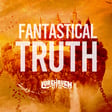Become a Creator today!Start creating today - Share your story with the world!
Start for free
00:00:00
00:00:01

239. Do You Prefer ‘Literary’ or ‘Genre’ Fantastical Fiction?
We love stories with fine writing.[1. Photo by Jonathan Francisca on Unsplash.] As the Scripture says, “A word fitly spoken is like apples of gold in a setting of silver.” But sometimes readers just want basic style, quick tools for the simple job of getting you in and out of a fantastical work of fiction. Which kind of stories do you prefer and why?
Episode sponsors
- Audio-Epic.com: “1232” podcast
- Laurie Christine: Garden of Mysteries: A Dragon Slayer Bible Story
- The Jabin Kainos series by Vince Mancuso
Mission update
- New review of Baptism by Fire by Alexandra Gilchrist
- Subscribe free to get updates and join the Lorehaven Guild
1. What I mean by ‘literary’ fiction vs. ‘genre’ fiction
Literary fiction
- Tends to focus on poetical language, deeper themes, character journeys.
- Sentences and paragraphs can be much longer and more complex.
- Books often use words as ornate instruments, not as simple tools.
- Less emphasis on reaching more readers and more emphasis on the Art.
- Tends to have limited readership and become educational, not just fun.
Genre fiction
- Tends to focus on basic plot, tropes, clear and simpler ideas/characters.
- Sentences are more basic—subject, verb, object—and much shorter.
- Books use words mainly as tools for the job, not ornate instruments.
- Less emphasis on the Art and more emphasis on reaching more readers.
- Tends to have broader readership and become fun, not just educational.
2. Why I get vexed by some ‘literary’ associations
- Notice I didn’t say “literary fiction” but associations—ideas around it.
- I feel vexed when literature teachers get preoccupied with Symbolism.
- This confuses the means of symbols for the ends of their meanings.
- See, for example, the false teachers who reduce the Bible to symbols.
- Some teachers really do seem to be imposing their views on the book.
- I recall several such examples from my old American Literature classes.
- Simple words, like “nightcap,” got misinterpreted with sexual meanings.
- Also, thanks to my upcoming novel, I’ve stumbled into a niche subgenre.
- Turns out that “missionaries in space” has a few very literary attempts.
- Of two top examples (I won’t name them), I’ve tried to read one so far.
- Frankly, the novel was dull. Very little sci-fi. Aliens way in the distance.
- The novel followed mostly very wealthy, remote, and unlikeable persons.
- And that’s another stigma with “literary” schools—the aloof elitism.
- Meanwhile, many literary sorts get preoccupied with politics and culture.
- They seem to think that real life also functions by “literary fiction” rules.
- And of course, the dullest teachers can turn great books into chores.
- One sci-fi writer, Bruce McAllister, tried a famous experiment in 1963.
- As a presumptuous student age 16, he wrote to 150 top literary figures.
- He asked: Did they really consciously put all these s
